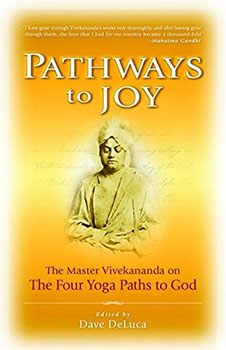What would you say if I told you that spiritual enlightenment is attainable to anyone who wants it? You might say that it’s just not possible in today’s world. We have too much to do, too many responsibilities. Or you might propose that enlightenment can only be achieved by a very rare person, like the Dalai Lama, or by someone with super-human capabilities.
The Impossible Pedestal of Enlightenment
Maybe it’s difficult to believe in our own potential because we have an incorrect or vague idea of what enlightenment is, or what an enlightened person looks like, or how they behave.
Many believe that the pinnacle of spiritual life requires leaving behind everything they know and love and spending years meditating in a mountain cave. Indeed, that’s still done today, and such stories attract attention. But the truth is that most enlightened people are content to live quiet, uneventful lives, not drawing attention to themselves.
Similarly, some think an enlightened person performs miracles like walking on water, healing the sick, reading minds, or seeing into the future. I’m not saying these events don’t occur, but they are rare. Although stories of miracles abound and have some validity, such supernatural events are not a requirement or even evidence of spiritual enlightenment. Yogic scriptures warn the spiritual aspirant about seeking special powers that often lead to diversions on the path.
These misunderstandings about what enlightenment means make it feel out of reach, nearly impossible. You might think, It’s a nice idea, but only for the fortunate few. I could never achieve that.
The Qualities of Enlightenment
In the Eastern traditions, it’s an accepted fact that enlightenment is not only attainable for everyone, it’s inevitable. It’s been described by the great masters, past and present, as well as many Eastern texts. These descriptions help us eliminate misunderstandings and provide guidance. They can also help us gauge our own level of spiritual progress.
Jivanmukta is the Sanskrit word for a person who is established in the state of enlightenment. It means one who is liberated while still living in a body. Other commonly used terms for such a person are a man (or woman) of wisdom, a Self-realized being, or an enlightened being. The state of this person is what we wish to achieve spiritually.
The jivanmukta embodies the qualities described in many authoritative Eastern scriptures. The Bhagavad Gita and Yoga Vasishtha give us the following list:
- Absence of fear, anger, worry, suffering, and jealousy
- Freedom from desires, lust, pride, or malice
- Mental strength and equilibrium
- Self-confidence, self-control, and self-mastery
- Understanding and wisdom
- Even-mindedness in praise and blame
- Seeing the good, the Divine, in others
- Contentment in all stages of life
All these qualities, and more, have been promised to us—and experienced by many—not just one or a few of these qualities, but all of them simultaneously and forever. This is the meaning of enlightenment. It has many other names, such as Self-realization, God-realization, liberation, and final illumination, as well as the Sanskrit terms nirvana, moksha, and mukti.
Enlightenment Within Our Reach
 At first glance, the qualities listed above seem impossible to experience even for a brief time, much less constantly. Yet we know that actual people, not just super-humans, have been known to embody these characteristics. When you read the biographies of these sages and saints, you discover that they often come from very humble beginnings.
At first glance, the qualities listed above seem impossible to experience even for a brief time, much less constantly. Yet we know that actual people, not just super-humans, have been known to embody these characteristics. When you read the biographies of these sages and saints, you discover that they often come from very humble beginnings.
The state of enlightenment is often described as that of perfect peace, eternal joy, and unconditional love. The phrase found in many religious and philosophical texts is “the peace that passes understanding,” which is an excellent description. Most of us have experienced this state in some small measure. It’s a moment when our otherwise overworked and busy minds are at perfect peace, and there is an overwhelming feeling that everything is good and right—just as it is. For most people, that experience is rare. But for the spiritual aspirant it happens frequently, and eventually it never leaves.
A life of perfect peace, filled with the experience of joy in all circumstances, has been promised to us by all the great teachers.
The Key to Enlightenment
When I began, I said that spiritual enlightenment is attainable by anyone who wants it. The key word in that statement is want. Desire is the most important ingredient to success on any path, especially the spiritual path, but it’s helpful to consider a familiar example, such as: what does it take to be an Olympic gold medal winner or a concert pianist? Elite athletes and master musicians know they must stay focused on their goal, wanting it above all else. The same is true on the spiritual path. If you want enlightenment more than anything else in the world, then you will achieve it.
There are many steps we take to reach enlightenment. We begin with a sense from within that there is a purpose to our lives. We find dissatisfaction, even sorrow, in what is commonly called a “full and happy life.” We begin to question the purpose of our life and look for answers. Along the way, we get a glimpse of the answer, a fleeting experience of the peace, joy, or love mentioned earlier. Our faith in that condition grows, we commit to a path, and we follow it to the end.
You’re on that path right now, whether you realize it or not. Enlightenment is already in your future. As you continue your meditation practice, affirm this for yourself. Believe in the inevitability of your success, and then practice with patience and perseverance.
Read the next article in this series:
Chityānanda has been a disciple of Svāmī Gurupremānanda Sarasvatī since 1975. She teaches meditation and yoga as a spiritual path in Santa Cruz, California.



Thank you for the important point you make on desire. There’s a common term used in Yoga, which is devotion. Devotion means love, but it also means attention. When you devote time to something, you focus all your attention on that. That’s why it’s appropriate when you say, “If you want enlightenment more than anything else in the world, then you will achieve it.”
Thank you for your comment, Megan. You might also enjoy reading the section on Bhakti Yoga in the book “Sanskrit Non-Translatables.” Namaste.
I am really enjoying the articles you have published on this site. The wisdom you share is clear and easy to reflect upon. Thank you Svami Chityananda !
Enlightment inevitable! Good!
It’s yours for the wanting, John. It’s just a matter of the strength of your desire. Namaste
My understanding of enlightenment within this play of consciousness, is that the sole purpose of ones being is to realize the Truth, so one can keep from returning to the world as a jiva. After reading the story of Milarepa, coming back with good karma would be helpful in this quest. So, whatever, keep moving forward.
Thank you for joining in, Tosh. Yes, I agree: just keep moving forward. Nothing to lose, everything to gain. Namaste.
I like the clear points you make and your understanding of what enlightenment truly is.
Thank you, Gary. I try to present the teachings in a way that makes sense. Your feedback is appreciated. Namaste.
I like the statement: “everything is good and right—just as it is.” When one is in this frame of mind, whether one is enlightened or not becomes irrelevant. Struggle ceases. Peace ensues.
Thank you for your insightful comment, Diego. I especially appreciate that you noted one’s frame of mind. Yoga puts even more emphasis on having a pure mind than on enlightenment. We attain peace when the mind is purified. Namaste.
False notions of enlightenment are surely an obstacle on the path. The qualities and keys to enlightenment that you point out are helpful.
Thank you, Modesto. Obstacles on the path are numerous, but like any other obstacle in life, as soon as we can see it we are on the way to destroying it. Namaste.
Sometimes I suspect more people would seek Enlightenment if they had an unforgettable and profound personal experience of it. It is good you point out Enlightenment is inevitable, and how quickly it comes depends on our desire and practice commitment. Godspeed to all you readers!
Thank you, Rob. Personal experience comes to all sincere seekers sooner or later. As you noted, it depends upon commitment. “As you sow, so shall you reap.” Namaste.
You are right. It is helpful to read from the lives of the saints about their road to enlightenment. And you have given us a nice list of qualities to use as signposts. if we are pursuing the spiritual path properly, we should see those qualities more and more in ourself.
Thank you for mentioning signposts, Tim. Sometimes people think that being on the spiritual path is like a long, dark tunnel, and that someday we magically appear on the other end–enlightenment. However, the path is more like a gradual step-by-step progression. Those signposts encourage us that we’re moving in the right direction. Namaste.
Your list of the jivanmutka qualities is very helpful. Thank you.
Thank you for your comment, Elizabeth. I’m pleased to know that you found the post helpful. Namaste.
All members of my class will surely benefit from this clearly written blog. Thank you.
Thank you for your comment and your confidence, SG. Your comment is encouraging as my goal is to present the yogic teachings with simple clarity. Namaste.
Well said. And true!
Thank you for your comment, Roxie. Namaste.